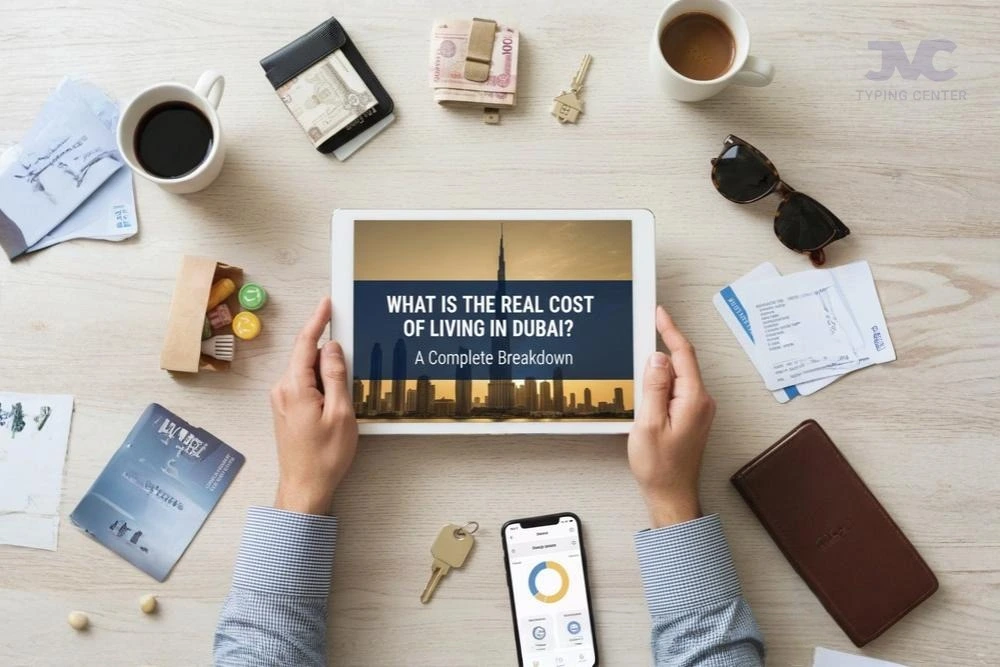
Dubai is famous for its modern lifestyle and endless opportunities. People from around the world dream of living here. The city shines with luxury yet everyday expenses are rising in 2025. Knowing the real cost of living helps you plan better.
Rent, food, transport, utilities, education and healthcare all shape your budget. Leisure and entertainment also play a role if you enjoy an active lifestyle. This year is important as salaries, rental prices and living standards continue to change. Let’s explore what life in Dubai truly costs in 2025.
Why Cost of Living Matters in Dubai
Living in Dubai is exciting, yet it comes with responsibilities. From rent and schooling to groceries and transport, costs can add up quickly. Understanding these expenses is not just about numbers. It is about planning your lifestyle, making smart choices, and ensuring financial peace of mind in one of the world’s most dynamic cities.
A Top Choice for Expats and Families
Dubai continues to welcome thousands of expats each year. Professionals move for career growth. Families settle here for safety and quality of life. To thrive in this city, you must understand what daily living will cost.
Budgeting Made Easier
Knowing expenses upfront helps you plan. Rent, schooling, groceries and transport add up quickly. A clear picture of costs makes it easier to manage monthly spending.
Salary Negotiations with Confidence
When you accept a job in Dubai, salary talks are crucial. Understanding living costs helps you negotiate fairly. You can secure a package that covers essentials and leaves room for savings.
Lifestyle Choices and Savings
Dubai offers luxury dining, world-class malls and vibrant entertainment. At the same time, affordable options exist. Knowing the cost of living helps you balance comfort with savings. It allows you to enjoy life in the city without financial stress.
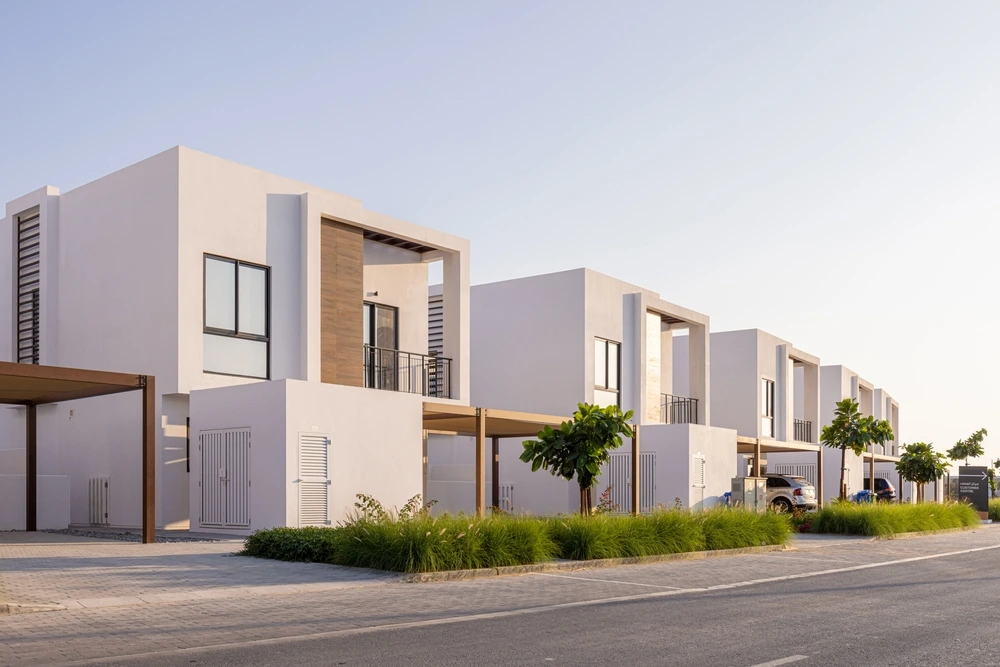
Housing and Rent in Dubai: The Biggest Expense
Finding a home in Dubai is the first and often the biggest step when planning your budget. This section looks at rent trends, housing choices, and what to expect in 2025.
Average Rents Across Communities
Rent takes the largest share of monthly income in Dubai. In 2025, the average apartment in JVC remains more affordable compared to luxury spots like Downtown or Dubai Marina. Deira continues to attract those looking for lower rents while Marina and Downtown are chosen for lifestyle and prestige.
Apartments vs Villas
Apartments are the top choice for singles and small families. They are easier to maintain and often come with shared facilities like gyms and pools. Villas appeal to bigger families who want privacy and more space. The cost of villa rent in Dubai can be two to three times higher than an apartment in the same area.
Shared Living or Private Housing
Many young professionals choose shared accommodation. It cuts down on rent and utilities and allows savings for other expenses. Single-family housing offers comfort and independence though it comes at a higher cost.
Trends for 2025
Rental prices in Dubai show steady growth this year. Affordable housing communities like JVC, Al Nahda and International City are in high demand. Families continue to look for value-for-money options while professionals lean toward central locations with easy transport links.
Every tenant must complete their Ejari registration in Dubai to make rental contracts legally valid and avoid disputes.
Utilities & Internet Costs
Daily life in Dubai comes with monthly bills. These include electricity, water, cooling, internet and mobile connections. Knowing the average costs helps you plan ahead and avoid surprises.
DEWA Bills
The Dubai Electricity and Water Authority (DEWA) handles power, water and cooling. Bills vary based on usage and home size.
- Small apartments often pay 400 AED to 600 AED per month.
- Larger villas may reach 1,200 AED or more.
- Cooling systems add extra costs during summer.
Internet and Mobile Plans
Staying connected is essential. Internet providers like Etisalat and Du offer packages for homes and mobiles.
- Home internet starts at around 300 AED per month.
- Mobile data packages begin at 125 AED monthly.
- Bundled deals are available for families who want TV and Wi-Fi together.
Average Monthly Spending
Utilities and connectivity can take a big part of your budget.
- Singles usually spend 500 AED to 800 AED.
- Families often spend 1,200 AED to 2,000 AED depending on usage.
Smart planning and choosing the right package can reduce costs without cutting comfort.
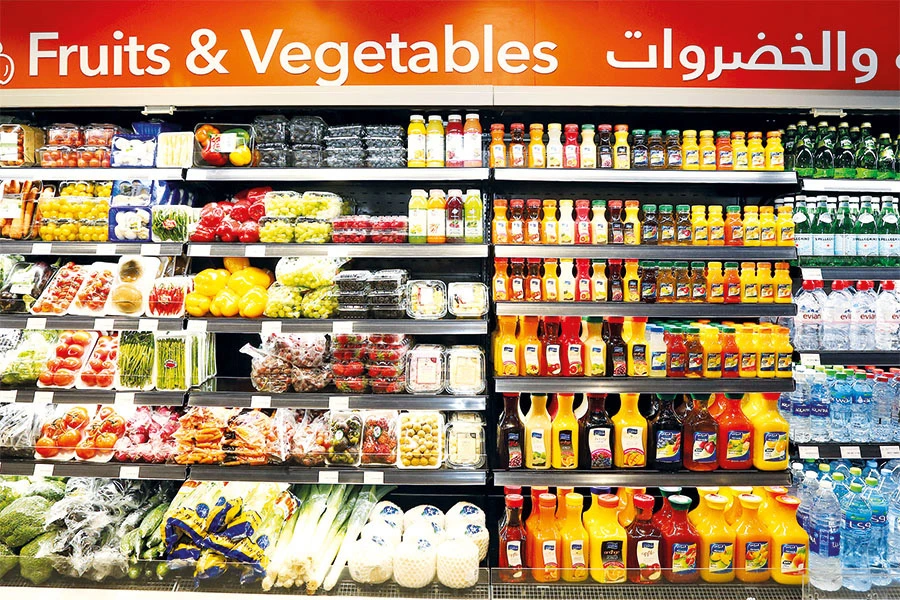
Food & Grocery Expenses
Food is one of the biggest parts of daily life in Dubai. The city gives you endless options. From supermarkets with affordable basics to restaurants serving global cuisine, you can always find something that matches your budget.
Supermarket Essentials
Groceries in Dubai come with mixed price ranges. Local products are cheaper while imported items cost more. Here are some average prices you may find in 2025:
- A liter of milk – 8 AED
- A loaf of bread – 5 AED
- A kilo of rice – 10 AED to 15 AED
- Fresh chicken – 25 AED per kilo
- Eggs – 12 AED for a dozen
These prices may change depending on the supermarket. Stores like Carrefour, Lulu and Union Coop are popular for affordable choices. Premium stores stock international items that come at a higher cost.
Imported vs. Local Products
Choosing between imported and local items makes a big difference in your monthly bill. Imported snacks, cheeses and branded cereals can cost double compared to local brands. Families that pick more local items often save a lot without compromising on quality.
Eating Out vs. Cooking at Home
Dining out in Dubai can be tempting. The city is full of cafés, street food spots and luxury restaurants. Yet eating out every day can add up quickly.
- A budget meal at a casual restaurant costs around 30 AED to 50 AED.
- A mid-range three-course meal for two may go up to 250 AED.
- Fast food options like burgers or pizza start from 25 AED.
Cooking at home is usually the more affordable choice. A family that cooks at home most of the week spends less compared to one that eats out often. Home cooking also gives you control over nutrition and portions.
Food Budget in Dubai
- Singles spend around 1,000 AED to 1,500 AED per month on food and groceries.
- Families spend 2,500 AED to 4,000 AED depending on lifestyle and eating habits.
Smart planning makes a difference. Mixing home cooking with the occasional dinner out helps you enjoy Dubai’s food scene while keeping your budget steady.
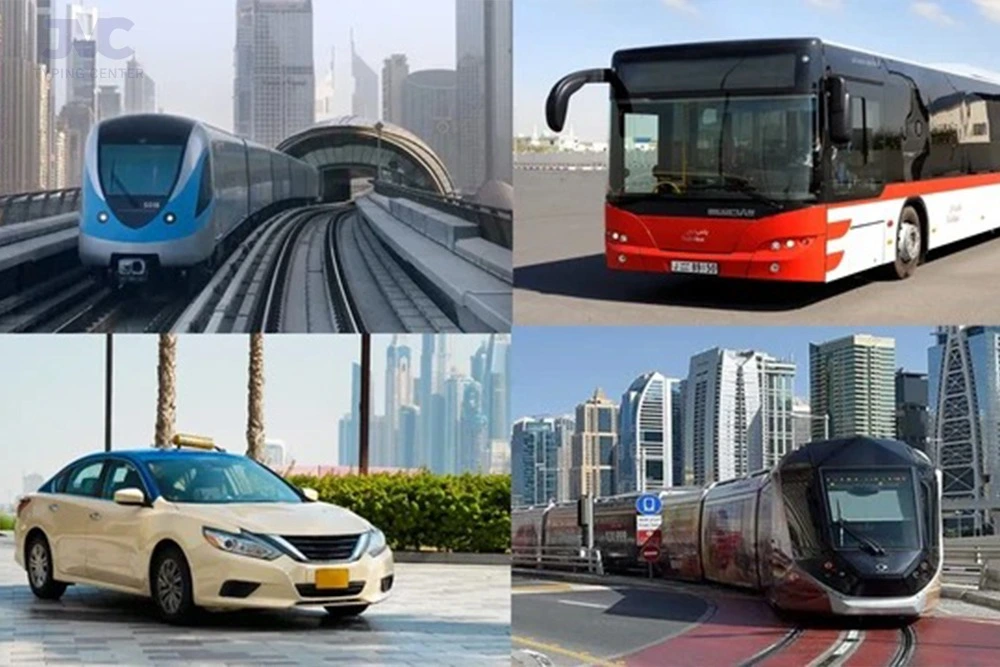
Transportation in Dubai
Moving around Dubai in 2025 is easier than ever. The city offers many ways to travel. From the modern metro to budget-friendly buses and reliable taxis, everyone can choose what fits their lifestyle and budget.
Public Transport Options
The Dubai Metro is one of the fastest and most affordable ways to get around. A single metro trip in 2025 costs between 3 AED and 8 AED, depending on the zone. The metro is clean, air-conditioned and connects major areas like Bur Dubai, Deira, Downtown and Dubai Marina.
Buses cover routes that the metro does not. They are also cheaper, with fares starting at 3 AED. For short trips or areas not connected by the metro, many people choose taxis. Taxi fares start at 12 AED and increase depending on the distance. Ride-hailing apps like Careem and Uber are also widely used.
Car Ownership Costs
Owning a car in Dubai gives you more freedom. However, it also comes with expenses.
- Fuel: The average fuel price in Dubai 2025 is around 2.7 AED per liter. Fuel is cheaper than in many countries, which makes driving more attractive.
- Car insurance: The cost of car insurance in the UAE depends on the vehicle and driver profile. On average, it ranges from 450 AED to 5,000 AED per year.
- Parking: Public parking in Dubai usually costs 2 AED to 4 AED per hour. Monthly parking permits in busy areas can go up to 500 AED.
These costs add up, so many families weigh car ownership against using public transport.
Rise of Electric Vehicles
Dubai is promoting green transport in 2025. Electric vehicles (EVs) are becoming popular thanks to lower charging costs and government incentives. Charging stations are now common across the city, especially in malls and public parking areas. Some EV owners even get free parking in selected zones.
Monthly Transport Budget
- A single person using only public transport may spend 300 AED to 500 AED per month.
- A family with one car spends more, usually 1,500 AED to 3,000 AED per month, including fuel, parking and insurance.
Dubai gives you choices. You can stick to budget-friendly public transport or enjoy the comfort of your own car. With the rise of electric vehicles, future transport in Dubai looks smarter and greener.
Education & Schooling Costs
Education is one of the most important factors for families living in Dubai. The city has schools and universities that follow different systems, giving parents many options to choose from. Costs vary based on the type of school, curriculum and grade level.
Public vs. Private Schools
Public schools in the UAE are mainly for Emirati students. They are low-cost and follow the Arabic curriculum. Expat families usually choose private schools. These schools offer international programs and have higher tuition fees.
Private School Options
Private schools in Dubai cover British, American, Indian and IB (International Baccalaureate) systems. Fees differ a lot.
- British schools: 30,000 AED to 70,000 AED per year
- American schools: 35,000 AED to 80,000 AED per year
- Indian schools: 12,000 AED to 25,000 AED per year
- IB curriculum schools: 40,000 AED to 100,000 AED per year
The wide range in Dubai school fees 2025 makes it possible for families to find a school that matches their budget.
University Costs for Expats
Higher education cost in Dubai are another major expense. Local universities and international branches are available. Tuition depends on the field of study.
- Undergraduate programs: 40,000 AED to 70,000 AED per year
- Postgraduate programs: 55,000 AED to 100,000 AED per year
- Specialized courses like medicine or engineering can go even higher
Universities such as American University in Dubai and Heriot-Watt attract many expat students who want quality education without leaving the UAE.
Budget Planning for Families
Education in Dubai is a long-term investment. Parents often plan years ahead to manage private schools UAE tuition and university fees. Some schools allow installment payments which makes it easier to handle costs.
Families moving to Dubai should always include school fees in their cost of living plan. Choosing the right school is not just about academics. It is also about finding a balance between quality education and affordability.

Healthcare Expenses
Healthcare in Dubai is known for its high standards. Modern hospitals, skilled doctors and advanced technology make the city one of the leading medical hubs in the region. Quality does come with a cost, so it is important to plan your healthcare budget carefully.
Health Insurance in Dubai
Health insurance is not optional. It is a legal requirement for all residents. Employers usually provide basic insurance plans, yet many people choose to upgrade for wider coverage. Better plans give access to more hospitals, faster services and fewer out-of-pocket expenses. Annual premiums can range from 1,500 AED for basic coverage to over 10,000 AED for comprehensive family plans.
Consultation Costs
Visiting a doctor without insurance can be costly. A general consultation at a private clinic may cost between 200 AED and 400 AED. Specialists often charge more. Some well-known Dubai hospitals may charge up to 600 AED for a single visit. Insurance usually covers most of these costs but co-payments are still common.
Medicines and Pharmacy Bills
Pharmacies are easy to find across the city. Prices vary depending on whether you buy branded or generic medicines. A simple antibiotic may cost 50 AED to 80 AED. Long-term medication for chronic conditions can raise monthly expenses. Insurance can help reduce these costs, though not every plan covers all medicines.
Hospital Care and Emergency Costs
Hospital stays are the most expensive part of healthcare. A night in a private room can cost from 1,000 AED to 3,000 AED. Emergency care, surgeries and maternity services can quickly run into tens of thousands of dirhams. This is why many residents choose insurance plans that cover major hospital care.
Healthcare in Dubai: Key Takeaway
- Basic insurance keeps you legally covered.
- Comprehensive plans save you from high hospital bills.
- Consultation costs range from 200 AED to 600 AED.
- Medicine prices depend on type and brand.
- Hospital stays are expensive without coverage.
Planning healthcare costs in Dubai ensures peace of mind. With the right insurance, you can access world-class treatment without draining your savings.
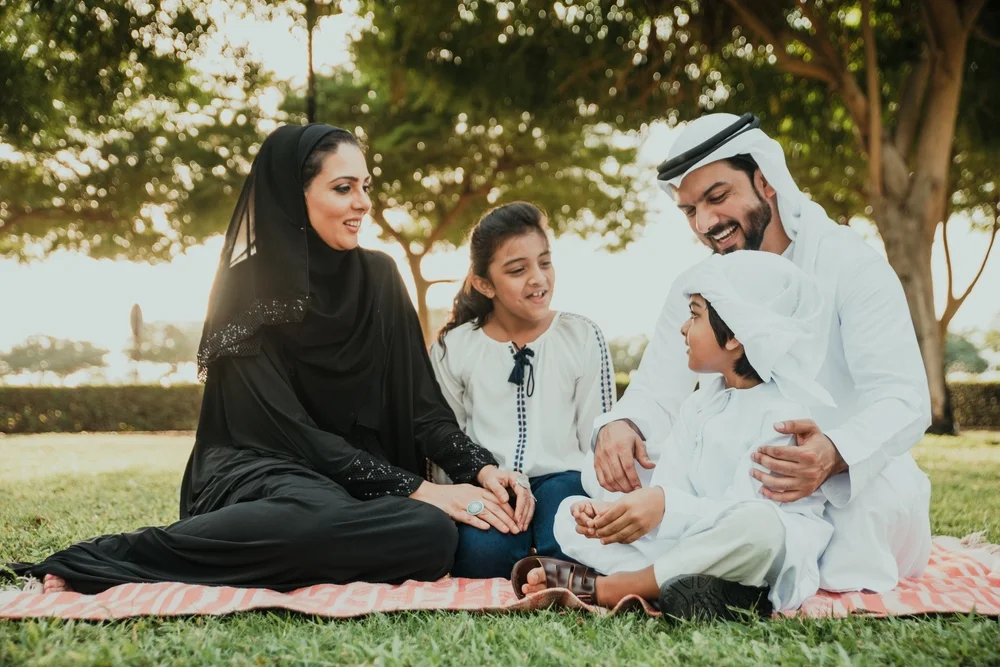
Lifestyle & Leisure Costs
Living in Dubai is not just about paying rent and buying groceries. The city offers endless ways to enjoy your free time. From fitness to family fun and shopping, lifestyle and leisure play a big role in monthly budgets.
Fitness and Health Activities
Staying active in Dubai comes at different price levels.
- A standard gym membership starts at 200 AED per month.
- Premium gyms with advanced facilities can go up to 800 AED per month.
- Yoga, pilates or group classes cost around 60 AED to 100 AED per session.
Outdoor fitness spots and public running tracks are free, which makes them great for budget-conscious residents.
Entertainment and Fun
Dubai is known for world-class entertainment. Families and individuals can choose from plenty of options.
- A cinema ticket costs around 45 AED to 60 AED.
- Theme parks such as Motiongate or IMG cost between 250 AED and 350 AED per person.
- Waterparks like Atlantis Aquaventure or Wild Wadi cost about 300 AED to 350 AED per person.
- Family parks and public beaches often charge little or are free.
With so many activities, it is easy to plan outings that suit both premium and budget lifestyles.
Shopping Choices
Dubai is famous for shopping. Luxury malls have designer stores with premium pricing. A single branded item can easily cost thousands of AED. On the other hand, budget-friendly spots like Dragon Mart or local markets offer affordable clothes, electronics and household goods. Many residents balance both, shopping for essentials at budget stores and treating themselves at luxury malls once in a while.
Dubai Lifestyle Expenses in Numbers
- Singles spend 1,500 AED to 3,000 AED on lifestyle and leisure monthly.
- Families may spend 3,000 AED to 6,000 AED depending on activities and shopping choices.
Dubai has something for everyone. Whether you enjoy outdoor adventures, family outings or luxury shopping, you can always find an option that fits your lifestyle and your wallet.
Average Monthly Budget in Dubai (2025)
Planning a monthly budget in Dubai depends on your lifestyle and family size. Salaries in 2025 have slightly increased, yet rising rents and living costs mean smart planning is essential. Here is a quick breakdown of what different groups spend on average.
Single Professional
- Housing in a shared apartment: 2,500 AED to 4,000 AED
- Food and groceries: 1,000 AED to 1,500 AED
- Transport and utilities: 800 AED to 1,200 AED
- Lifestyle and leisure: 1,500 AED to 2,500 AED
- Total monthly budget: 6,000 AED to 9,000 AED
Couple Without Kids
- One-bedroom apartment: 6,000 AED to 8,500 AED
- Food and groceries: 2,000 AED to 2,800 AED
- Utilities and internet: 1,200 AED to 1,800 AED
- Entertainment and dining: 2,000 AED to 3,500 AED
- Total monthly budget: 11,000 AED to 15,000 AED
Family with Children
- Two or three-bedroom apartment: 9,000 AED to 14,000 AED
- Food and groceries: 3,500 AED to 5,000 AED
- Utilities, internet and transport: 2,500 AED to 4,000 AED
- School fees and child expenses: 2,500 AED to 6,000 AED
- Leisure and outings: 3,000 AED to 5,000 AED
- Total monthly budget: 20,000 AED to 30,000 AED
Living in Dubai can be affordable or premium depending on choices. Expats who budget wisely enjoy a good lifestyle without overspending.
Saving Tips for Expats in Dubai
Living in Dubai can be expensive if you are not careful. Many expats learn that small lifestyle choices make a big difference. With smart planning you can enjoy the city and still save money.
Find Affordable Housing Areas
Rent is the largest expense for most expats. Choosing the right location can cut your costs by thousands every year.
- Areas like International City, Discovery Gardens and Dubai Silicon Oasis offer lower rents compared to Downtown or Marina.
- Sharing an apartment with friends is another way to save if you are single.
Use Nol Card for Transport
Transport costs add up fast. A Nol card makes metro, bus and tram rides cheaper. You can even use it for water buses and parking. Many expats prefer public transport to avoid high fuel and parking fees.
Shop Smart for Groceries
Groceries in Dubai can feel costly if you buy without a plan. Compare prices at supermarkets like Carrefour, Lulu and Union Coop. They run frequent promotions on essentials. Buying local products instead of imported brands also saves money. For fresh produce, many expats visit markets in Deira or Karama.
Choose Schools and Insurance Wisely
Education and healthcare are two major costs for families. School fees vary a lot. British and American curriculums are usually higher while Indian and Filipino schools are more budget-friendly. Health insurance is mandatory so look for plans that cover your main needs without unnecessary extras.
Quick Saving Habits That Work
- Cook more meals at home instead of eating out every day.
- Use discount apps like Entertainer for restaurants and activities.
- Track monthly expenses with a budget app.
- Avoid last-minute bookings for travel as early deals are cheaper.
Missing deadlines on visas or rent can be costly. Knowing the grace period rules in the UAE helps expats avoid fines and stay compliant.
Plan Smart, Live Better in Dubai
Dubai is a city of contrasts. You see luxury everywhere yet there are also many affordable options if you know where to look. The real cost of living depends on the choices you make every day. Housing, food, transport and schooling all add up. Without a clear budget, expenses can quickly go out of control.
Planning ahead is the best way to enjoy life in Dubai without financial stress. From setting a food budget to finding the right school or cutting transport costs, smart decisions create balance.
If you are moving to Dubai or planning to renew your documents, let the experts handle the paperwork. JVC Typing Center can assist with residency visas, Emirates ID and other government services. That way, you focus on building your new life while we take care of the formalities. For free consultation contact our office.
Frequently Asked Questions About Cost of Living in Dubai
Q1. How much salary do you need to live comfortably in Dubai in 2025?
A single person can live modestly with around 10,000 AED per month. Families often need 15,000 AED to 25,000 AED per month, depending on lifestyle and schooling choices.
Q2. Which area in Dubai has the cheapest rent?
Budget-friendly areas include International City, Al Nahda and Deira. These communities offer lower rents and good public transport links.
Q3. Is healthcare free for expats in Dubai?
Healthcare is not free for expats. Employers usually provide basic medical insurance. For more coverage, families often choose private insurance plans.
Q4. How much do groceries cost per month in Dubai?
A single person spends around 800 AED to 1,200 AED monthly on groceries. Families may spend 2,500 AED or more, especially if they buy imported items often.
Q5. Is Dubai more expensive than Abu Dhabi in 2025?
Dubai is usually more expensive in terms of rent and lifestyle. Abu Dhabi has slightly lower housing costs, though both cities have similar prices for food, utilities and transport.

1 comment on “What is the Real Cost of Living in Dubai in 2025? A Complete Breakdown”